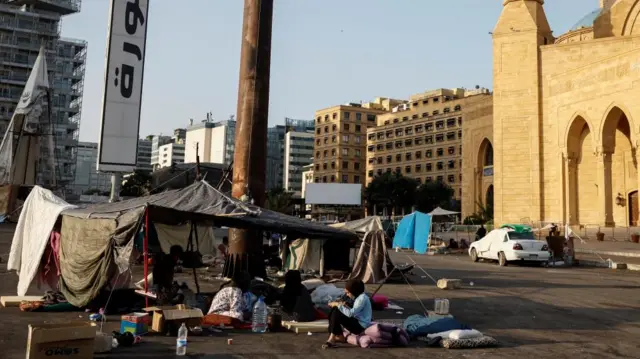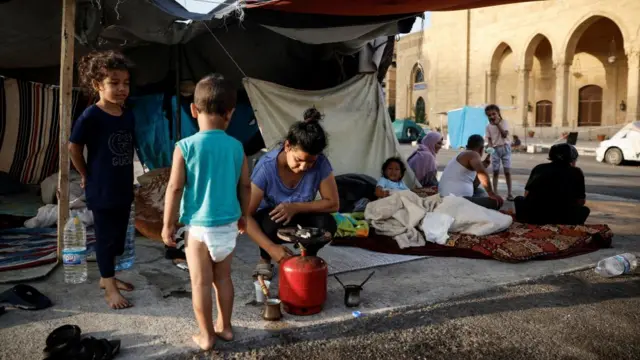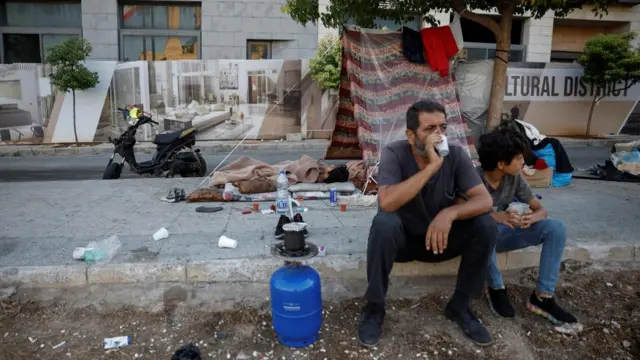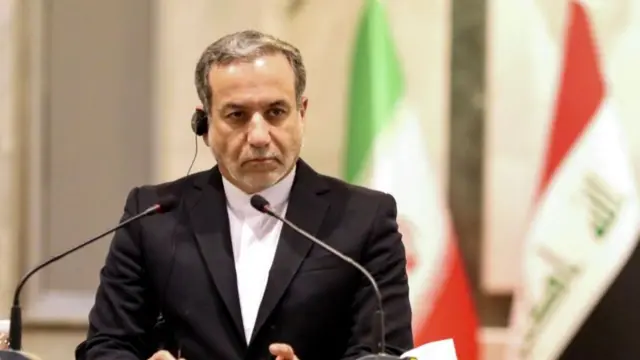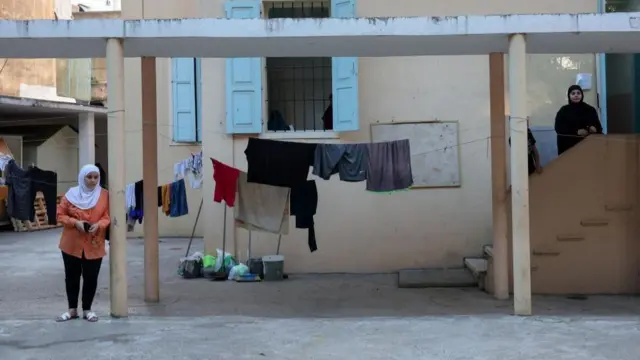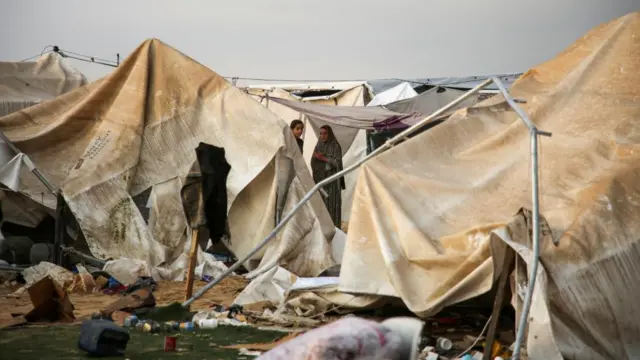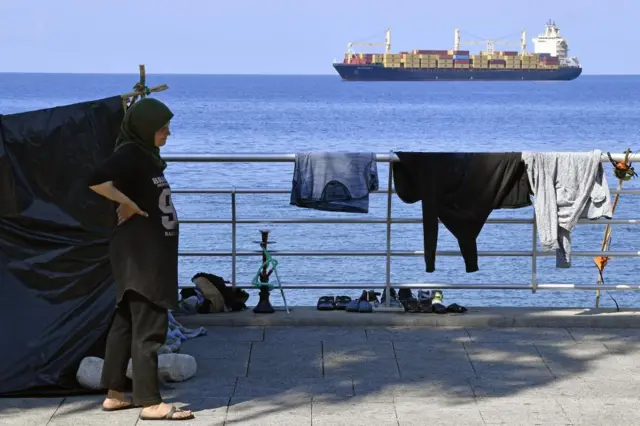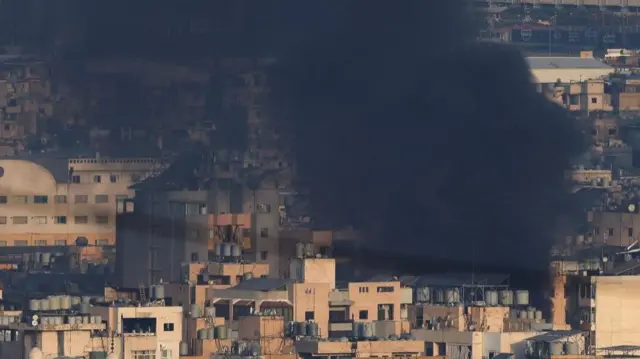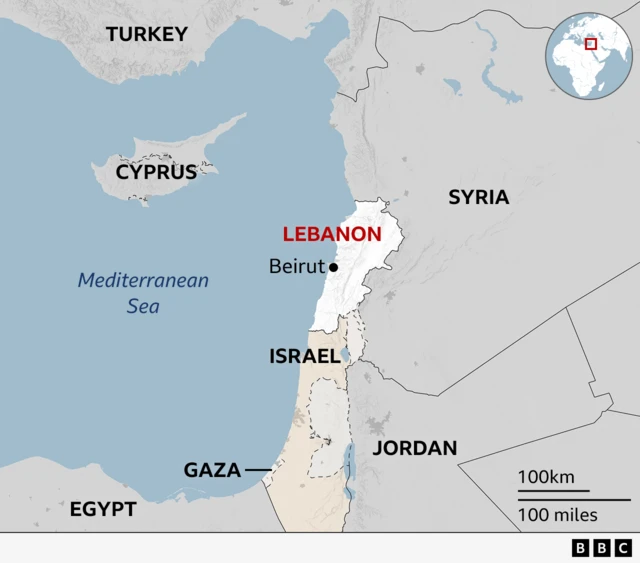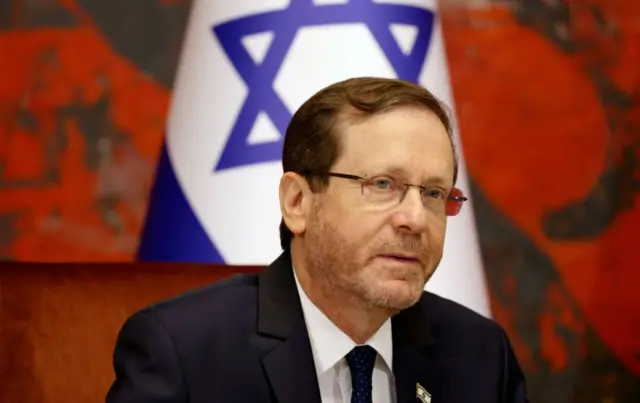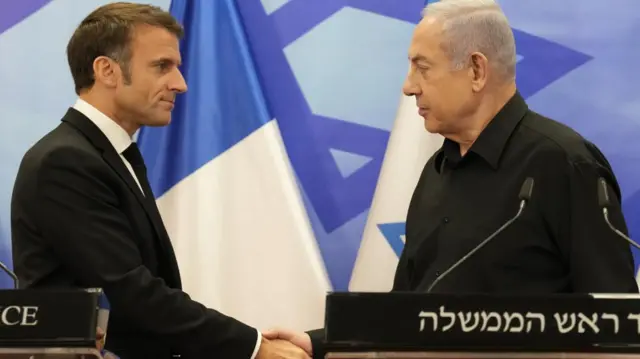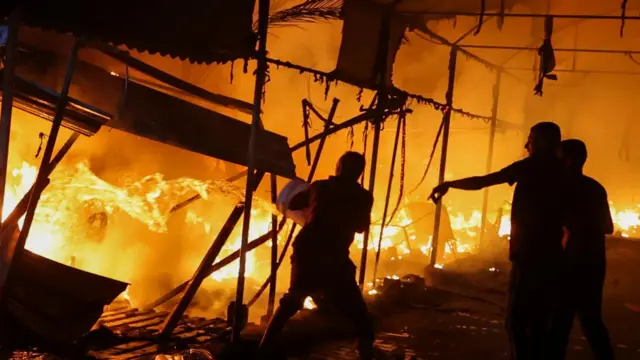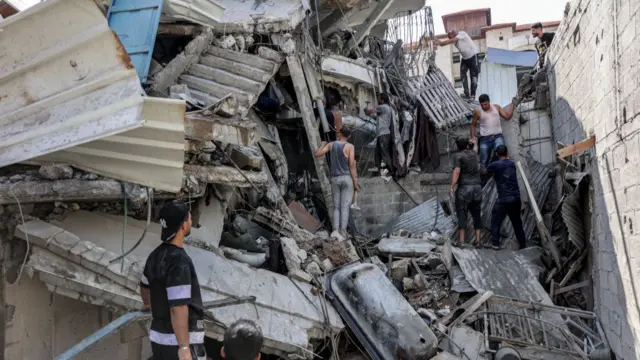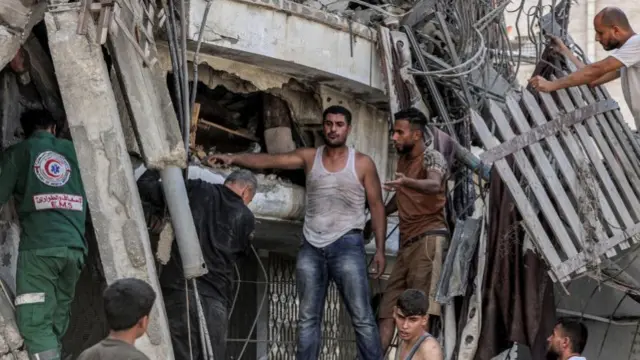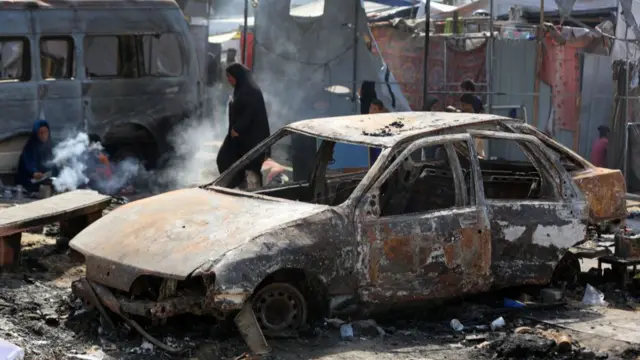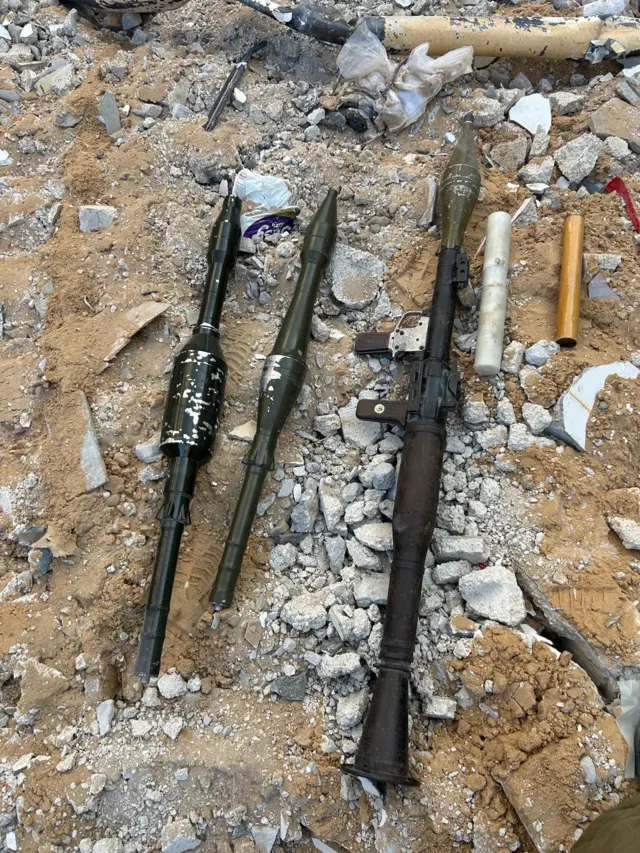Nowhere in Lebanon seems safe, say people in Beirutpublished at 09:28 BST 16 October 2024
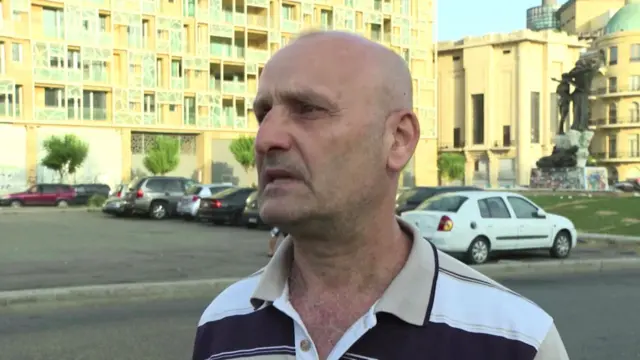 Image source, Reuters
Image source, ReutersMohamed Gradi warns the 'situation is only getting worse' 15 days into Israel's ground operation in Lebanon
We just brought you pictures from Beirut - now we can bring you quotes from some of the people there.
Mohamed Gradi, 57, says there is no part of Lebanon where people feel safe.
"You see displacement, people not finding places to stay," he tells Reuters.
"[People] got displaced from the south, from Dahieh [Beirut’s southern suburbs], from Bekaa, and even from areas of our fellow Christians, they as well got displaced."
Meanwhile, displaced Mostafa Saleh, 48, says Israel's air strikes could increase support for Hezbollah.
"If they think that they can scare the supporting environment [of Hezbollah] this way - on the contrary...look at us... we are living not like human beings, we are homeless."
